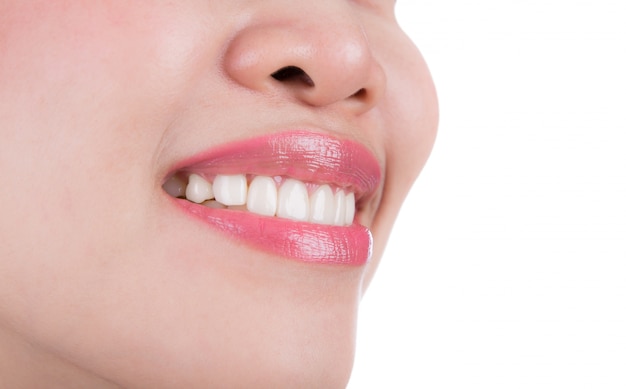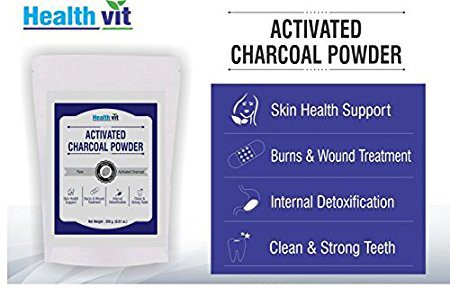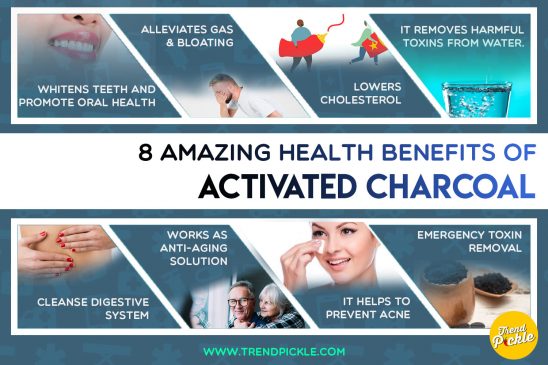Also known as activated charcoal, Activated carbon is a form of processed carbon. Activated charcoal has small pores that increase the available surface area for adsorption or chemical reactions. Activated is sometimes replaced with active. It has various uses and health benefits. Charcoal is a fine black powder made from wood or other natural materials by heating them in an airless environment. Charcoal used for health conditions is usually activated (processed) to make it a very fine powder which increases its effectiveness. Here are 8 amazing health benefits of Activated charcoal.
WHAT ARE VARIOUS BENEFITS OF ACTIVATED CHARCOAL?
Let’s look in detail about the uses and health benefits of Activated Charcoal.
1. WHITENS TEETH AND PROMOTE ORAL HEALTH –

Activated charcoal can be used to get clean and strong teeth. It is also known to promote overall oral health. If you have stains on your teeth due to smoking, tea, coffee or any other reasons, activated charcoal can help to whiten the teeth. It removes the stains from teeth. The activated charcoal powder is fine so it does not scratch the teeth and removes surface stains only. You can sprinkle some activated charcoal powder on your brush on top of your regular toothpaste and brush your teeth as you normally do. You can do brushing with powder 2-3 times per week to get better results.
2. Alleviates Gas & Bloating –

Stomach disorders like bloating and intestinal gas can be both a painful and embarrassing problem. Did you know that activated charcoal is a simple and effective remedy? If you are suffering from gas and bloating, Activated Charcoal can ease gas and bloating. Activate Charcoal has the ability to absorb most poisons and toxins, charcoal can be very effective in absorbing the less harmful, but uncomfortable, acids and gases that accumulate in your gut. These substances can cause indigestion, acid reflux and a bloated stomach.
If you are planning to buy Activated Charcoal, we recommend it buying from here.
3. Water Filtration –

As we already discussed Activated charcoal can remove harmful toxins. Activated carbon works via a process called adsorption, whereby pollutant molecules in the fluid to be treated are trapped inside the pore structure of the carbon substrate. Activated carbon filters remove or may reduce the amount of hazardous organic chemicals and hundreds of man-made substances found in tap and groundwater and thus cleaning the water. If looking for a water purifier, here is the complete guide on how to choose the best water purifier.
4. Lowers Cholesterol –

Activated Charcoal may reduce the concentration of total lipids, cholesterol, and triglycerides in the blood serum, liver, heart, and brain. Various studies conducted around the world suggest that activated charcoal has the ability to reduce bad cholesterol and increase good cholesterol.
5. Cleanse Digestive System –

Activated charcoal promotes a healthy digestive tract by absorbing toxins that may cause allergic reactions, oxidative damage, and poor immune system function. By removing the toxins from your system, you can reduce joint pain, increase energy levels and improve mental clarity.
6. Anti-aging –

Aging is a natural process of life which we can not defy but we can definitely do many things to stop signs of premature aging which happens due to a load of toxins that we consume through our food, our homes, workplaces, and our environment. To stop premature ageing, we need to detoxify our body and get rid of all toxins at frequent intervals. Activated charcoal provides benefits to major organs by helping the body flush out the toxins and chemicals that cause the damage. Here is a list of top anti-aging foods to slow down aging.
7. Emergency Toxin Removal –
Activated charcoal is used when a person swallows or absorbs any poison, toxic drug or chemical. In the emergency room, the black powder is mixed with a liquid and given to a poisoned patient to drink. The efficiency of activated charcoal depends on how quickly it is given after the poisonous substance is swallowed. The sooner activated charcoal is given after a drug or chemical is swallowed, the better it works. Activated charcoal also helps to prevent hangovers.
8. Skin Health –

Activated charcoal uses extend beyond internal applications. For external treatments, it’s effective in relieving discomfort from insect bites, bee stings, rashes from poison ivy, and snake bites. If a mosquito bite or bee sting, mix one capsule of activated charcoal with the half tablespoon of coconut oil and apply to the affected area. Reapply every 30 minutes until you are free of itching and discomfort.
Activated charcoal is also used for acne treatment. To treat acne, mix one capsule of activated charcoal with two teaspoons of aloe vera gel, and apply over face. Let dry and rinse off completely. The activated charcoal binds with environmental toxins and dirt that contribute to acne. You can apply activated charcoal facemask to get rid of blackheads and dirt from the face.
“Do not take Activated Charcoal within 2 hours of having Dietary Supplement/Prescription Medicine as it may reduce the proper absorption of Dietary Supplement/Prescription Medicine. ”
Do you know any other activated charcoal benefits, let us know in the comments section!


